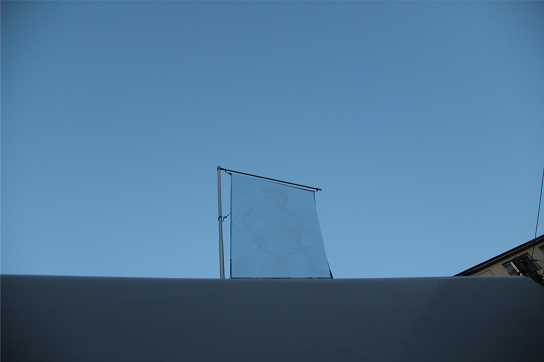
Maximum number of participants: 10
All architectures are temporal: they change over time, and are subject to continuous material transformations, circulatory processes, and shifting receptions and practices. And yet, some works seem less permanent than others. Installations, exhibitions, pavilions, biennials, and other interventions inscribed in the accelerated and inescapable dynamics of creation and destruction resonate with imaginaries and expectations of innovation and constant flux. Recalling the practices of the 1960s and 1970s, contemporary cultural institutions are drawn to—as Archigram wrote about their Instant City—“the loveliness of the idea” of an architecture “appearing out of nowhere, and after the ‘event’ stage, lifting up its skirts and vanishing.”
This course focuses the temporal architecture of cultural institutions, their exhibition models, curatorial practices, social experiments, and their impact and political implications. We will examine the recent expansion of the architectural exhibition apparatus, and how institutional borders circulate, from the gallery space to permeate the city. We will analyze the resulting reconfigurations of the relations between space, power and politics in the urban space including new forms of control and consumption, changing conditions for inclusion and exclusion as well as the emerging modes of engagement and political agency that are rendered possible by these transformations.
The sessions will be structured around a series of cases-studies, including alternative spaces, architecture biennials and triennials, and commissions and temporary projects by major institutions such as MoMA PS1 Young Architect’s Program (YAP), The Serpentine Gallery Pavilion, the BMW Guggenheim Lab, and the Centre Pompidou Mobile, among others.
Biography
Marina Otero Verzier is an architect based in Rotterdam. She is Head of Research and Development at Het Nieuwe Instituut. Previously she was based in New York, where she was Director of Global Network Programming at Studio-X, a global network of research laboratories for exploring the future of the built environment, which was launched by the Graduate School of Architecture Planning and Preservation at Columbia University in 2008. She was Adjunct Assistant Professor at the same institution.
Otero studied architecture at TU Delft and ETSA Madrid, where she completed her PhD in 2016. Her thesis 'Evanescent Institutions' examined the emergence of a new paradigms for cultural institutions. In 2013, as a Fulbright Scholar, she graduated from the M.S. in Critical, Curatorial and Conceptual Practices in Architecture at Columbia University GSAPP.
Her work, recently awarded by The Graham Foundation and Fundación Arquia, has been published in different books and journals. Otero has co-edited Promiscuous Encounters (GSAPP Books, 2014), Unmanned: Architecture and Security Series (Dpr-Barcelona, 2016), After Belonging: The Objects, Spaces, and Territories of the Ways We Stay In Transit (Lars Müller Publishers, 2016). She was Chief Curator of the Oslo Architecture Triennale 2016 with the After Belonging Agency. She also co-curated exhibitions at the 2013 Shenzhen Bi-city Biennale and the 2014 Istanbul Design Bienniale.
Otero has taught seminars and studios at ETSAM, Barnard College, and Columbia GSAPP, and lectured at a number of universities around the world, including AA London, AHO, EPS Alicante, ETSAM, GSAPP, Harvard GSD, and Ryerson University.